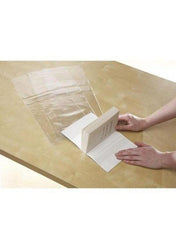Have you always been fascinated with sea life?
Today, we have the amazing Monica Mullins sharing the secrets of her work in Marine Sciences.
Keep reading if you'd like to hear more about Aquatic Biogeochemistry.
1. Could you tell us a little bit about yourself?
I’m a PhD researcher working with iCRAG (The Irish Centre for Research in Applied Geoscience) based at NUIG (National University of Ireland, Galway). I graduated with a BSc in Marine Science from NUIG in 2016. I’m originally from Clare where I did my Leaving Certificate in 2010, my favourite subjects were Biology, Chemistry and Irish.
2. Why did you become a PhD Student? What drew you to Marine Sciences?
While I have always been fascinated with the sea, I was also interested in Nursing when I filled out my CAO. I was undecided on what course I wanted to do, so I took a gap year to work and travel. When I filled out my CAO for the second time and I got Marine Science I felt confident that it was the right course for me. Being a practical person by nature, I enjoyed the balance between lab-based, fieldwork and academic studies that the course had to offer. During my bachelor’s degree, I was fortunate to get some experience working in a Marine Microbiology Lab, analysing phytoplankton samples under a microscope. This experience along with the work I carried out for my final year project influenced me to pursue a PhD.
3.What are you currently working on?
My project looks to use satellites (Synthetic aperture radar and ocean colour) to identify natural and unnatural slicks in Irish waters. A challenge facing industry is the ability to detect and monitor oil spills and slicks among other naturally occurring compounds, such as phytoplankton blooms and naturally occurring oil seeps. For fieldwork, I have been part of a scientific team on-board the R.V. Celtic Explorer where we collect seawater samples from different depths throughout the water column. I’m particularly interested in the seawater from the surface waters, which can be analysed for phytoplankton and Chlorophyll (Proxy for phytoplankton biomass). This in-situ data can then be used to validate the satellite observations.
4. Would you have any words of encouragement for Leaving Cert students that would also like to pursue this career?
Experience is key. Volunteering along with paid internships are very useful ways to gain a variety of experience. It’s important to be proactive about seeking employment and training opportunities. Don’t be afraid to reach out for advice, you’d be surprised just how many people are willing to help. Look at what FAS courses are available. Also, worth checking out what college courses are offering work placements. There are many different routes to any career.


